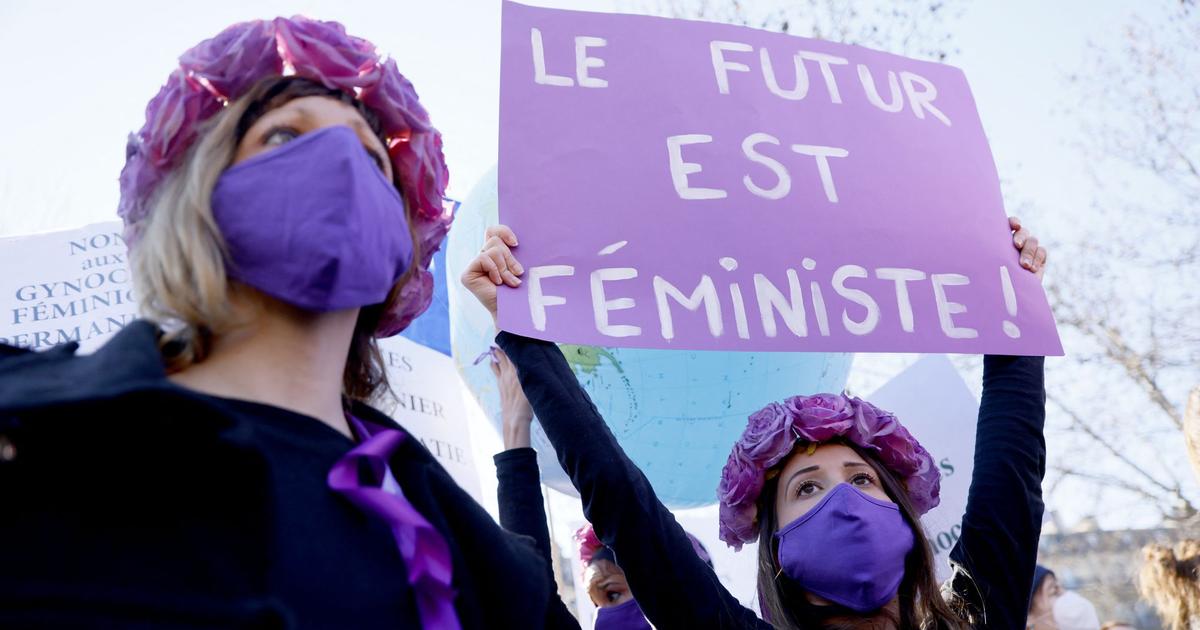It is a subject which, for several years, has opposed generations and elected officials.
The deputy (LREM) of Indre, François Jolivet, has just tabled a bill aimed at “banning the use of inclusive writing for legal persons in charge of a public service mission”.
He is supported by 60 members of the majority but also of the opposition.
According to them, this writing "is not understood by all" and generates in particular "difficulties for the visually impaired".
Back to a passionate debate.
What does the proposed law contain?
This proposal was registered by the presidency of the National Assembly on Tuesday.
In addition to François Jolivet (LREM), we find the names of 60 deputies, some from the majority, others excluded from it but also members of the opposition.
While starting with a "Ladies and Gentlemen", which moreover relates to inclusive writing, the member for Indre proposes that "in administrative documents, the use of so-called inclusive writing, which designates editorial and typographical practices aiming to replace the use of the masculine, when it is used in a generic sense, with a writing emphasizing the existence of a feminine form ”.
Thus, this would apply "to documents produced by administrations and by bodies and persons entrusted with a public service mission".
READ ALSO>
Inclusive writing: "The language included more women 400 years ago"
In their sights, parliamentarians are offended by the use in official publications of "new words" such as "iels" for "they / them", "toustes" for "all", "celleux" for "those / them". those ”,“ Dear determined readers ”.
They consider this path for equality between women and men to be “confusing”.
For the defenders of this text, basing themselves on experts, inclusive writing generates difficulties for dyslexics but also visually impaired people for whom “the reading devices they use are inoperative”.
If we do not yet know when it will be debated, we can recall that last July, Marine Le Pen and the deputies of the National Gathering had tabled a bill very close to this one.
She had not been selected.
What about today ?
For the moment, no text constrains those who want to write author or firefighter, even student.es However, the bill uses an official opinion of the French Academy, of October 2017, which warned of a possible "Confusion bordering on illegibility".
Morning essentials newsletter
A tour of the news to start the day
Subscribe to the newsletterAll newsletters
Because this debate appeared at the heart of the political sphere in 2017 when Hatier editions published a textbook written in inclusive writing.
The government then seemed against its use The Minister of National Education, Jean-Michel Blanquer, did not want inclusive writing to be used in school textbooks.
Prime Minister Édouard Philippe signed a circular recommending not to use it in the Official Journal.
READ ALSO>
Should we give up inclusive writing?
Marlène Schiappa, then Secretary of State for Equality between Women and Men and the Fight against Discrimination, considered the desire to change the rules for the agreement of adjectives to be "problematic" in favor of "the agreement of proximity ”, of which 314 French teachers demanded the return in a petition published on Slate.fr.
What is the goal of inclusive writing?
For advocates of inclusive writing, it aims to put women and men on an equal footing.
This can be translated in different ways such as female agreement (for trades), majority agreements (write dear students when they are in the majority in a course), double flexion (Ladies and Gentlemen) or even the midpoint , “Citizen.es”, to read “citizens” orally.
Well.
I will make enemies.
Ok for equal pay for equal work.
Ok the feminization of the author / author professions.
But inclusive writing, fuck you rewrite Proust with your shitty writing.
- Isabelle Mergault (@IsaMergault) February 24, 2021
According to Auphélie Ferreira, doctoral student in Language Sciences at the University of Sorbonne Nouvelle Paris, it is above all this last point which "crystallizes the debate".
“The words author or doctor already existed in the 17th century but were deleted by Richelieu and the French Academy who were macho.
This led to a masculinization of French, ”explains the expert, who recalls that General de Gaulle had made people cringe when he said“ French, French ”.
According to the sociolinguist, inclusive writing is already used, without realizing it, by millions of French people, especially for proximity agreements.
“Moreover, double flexion poses no problem for dyslexics, nor the use of the words lawyer or doctor,” she recalls.
On the other hand, a study by Pascal Gygax, a psycholinguist, revealed that the masculinization of the language "induces biased mental representations, favorable to men".
Children who are taught the professions of "lawyer and nurse" will think that the first is more for men and the second for women.
“This is why children need to have the feminine because the masculine is not neutral.
However, at school, these young people have more difficulty understanding the midpoint, ”notes the specialist.
Auphélie Ferreira concludes: “Ultimately, it is the use that will make the language.
People can vary the uses according to their wishes ”.














